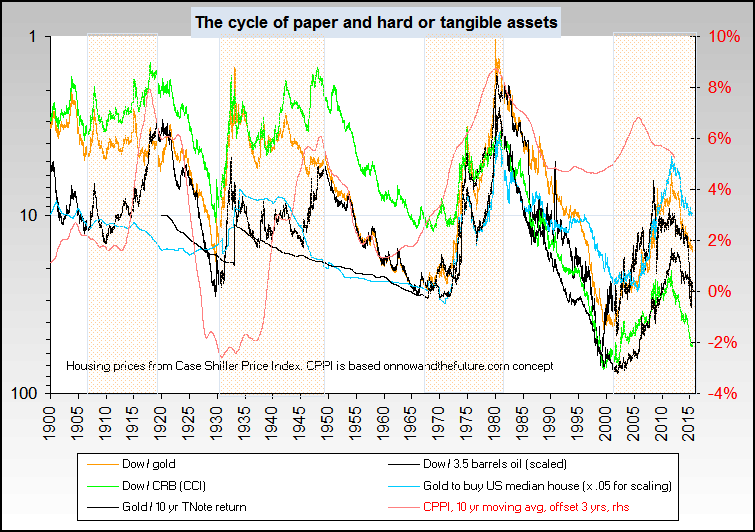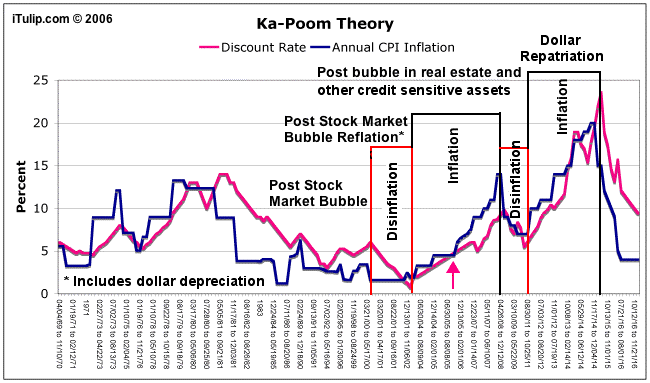Re: Deflationistas, inflationistas, and hyperinflationistas - Eric Janszen
Bart - iTulip does not buy into the "cycles" idea to the best of my understanding. "Cycles" are suspiciously akin to "waves" and as far as I can grasp, that is a thoroughly discredited thesis regarding any fruitful observation of asset markets epiphenomena at iTulip. Not to mince terms, "Cyclical Predictability" is a bad word, here. iTulip in recent weeks has quite categorically stated that an intelligible approach to understanding market movements can only derive from the vantagepoint of marketplace fundamentals and reasonably traditional macro-economics.
Have you ever squared your "market cyclicality" thesis away with iTulip's editorial view, or does it remain an uncomfortable area of divergent viewpoints? In case my comment is read as ambivalent, I for one commend your work and embrace that cyclicality 100% (it's a very valuable insight!), and as it's 100% empirically derived and most eminently does display "cycles" which are suspiciously similar to "waves", I'm left wondering how exactly iTulip concludes that a technical scrutiny of reliably anticipated periodicity in the markets is a specious endeavor altogether. iTulip are infinitely subtle and modulated in most other analyses, but when it comes to "cycles" and "waves" a certain inflexibility creeps in.
Bart - iTulip does not buy into the "cycles" idea to the best of my understanding. "Cycles" are suspiciously akin to "waves" and as far as I can grasp, that is a thoroughly discredited thesis regarding any fruitful observation of asset markets epiphenomena at iTulip. Not to mince terms, "Cyclical Predictability" is a bad word, here. iTulip in recent weeks has quite categorically stated that an intelligible approach to understanding market movements can only derive from the vantagepoint of marketplace fundamentals and reasonably traditional macro-economics.
Have you ever squared your "market cyclicality" thesis away with iTulip's editorial view, or does it remain an uncomfortable area of divergent viewpoints? In case my comment is read as ambivalent, I for one commend your work and embrace that cyclicality 100% (it's a very valuable insight!), and as it's 100% empirically derived and most eminently does display "cycles" which are suspiciously similar to "waves", I'm left wondering how exactly iTulip concludes that a technical scrutiny of reliably anticipated periodicity in the markets is a specious endeavor altogether. iTulip are infinitely subtle and modulated in most other analyses, but when it comes to "cycles" and "waves" a certain inflexibility creeps in.
Originally posted by bart
View Post

 ].
].

Comment